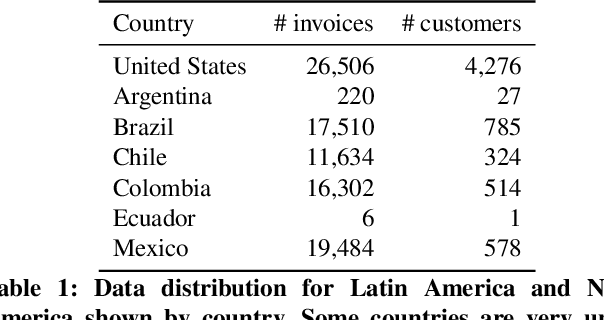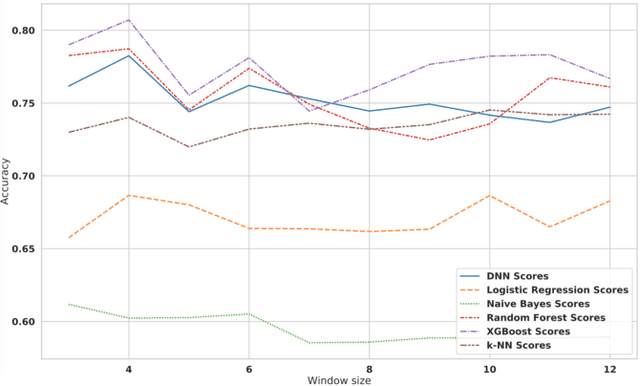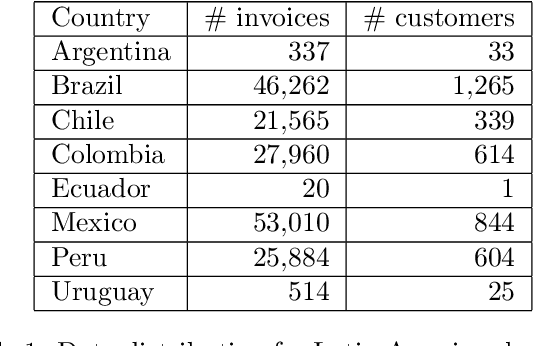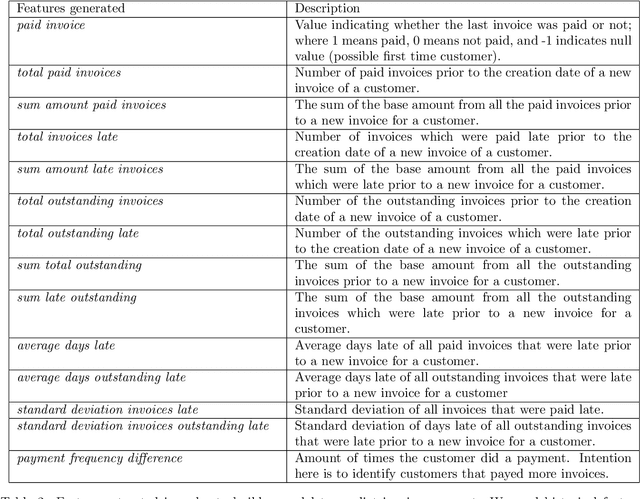Gabriel Louzada Malfatti
Predicting Account Receivables with Machine Learning
Aug 11, 2020



Abstract:Being able to predict when invoices will be paid is valuable in multiple industries and supports decision-making processes in most financial workflows. However, due to the complexity of data related to invoices and the fact that the decision-making process is not registered in the accounts receivable system, performing this prediction becomes a challenge. In this paper, we present a prototype able to support collectors in predicting the payment of invoices. This prototype is part of a solution developed in partnership with a multinational bank and it has reached up to 81% of prediction accuracy, which improved the prioritization of customers and supported the daily work of collectors. Our simulations show that the adoption of our model to prioritize the work o collectors saves up to ~1.75 million dollars per month. The methodology and results presented in this paper will allow researchers and practitioners in dealing with the problem of invoice payment prediction, providing insights and examples of how to tackle issues present in real data.
Optimize Cash Collection: Use Machine learning to Predicting Invoice Payment
Dec 20, 2019



Abstract:Predicting invoice payment is valuable in multiple industries and supports decision-making processes in most financial workflows. However, the challenge in this realm involves dealing with complex data and the lack of data related to decisions-making processes not registered in the accounts receivable system. This work presents a prototype developed as a solution devised during a partnership with a multinational bank to support collectors in predicting invoices payment. The proposed prototype reached up to 77\% of accuracy, which improved the prioritization of customers and supported the daily work of collectors. With the presented results, one expects to support researchers dealing with the problem of invoice payment prediction to get insights and examples of how to tackle issues present in real data.
 Add to Chrome
Add to Chrome Add to Firefox
Add to Firefox Add to Edge
Add to Edge